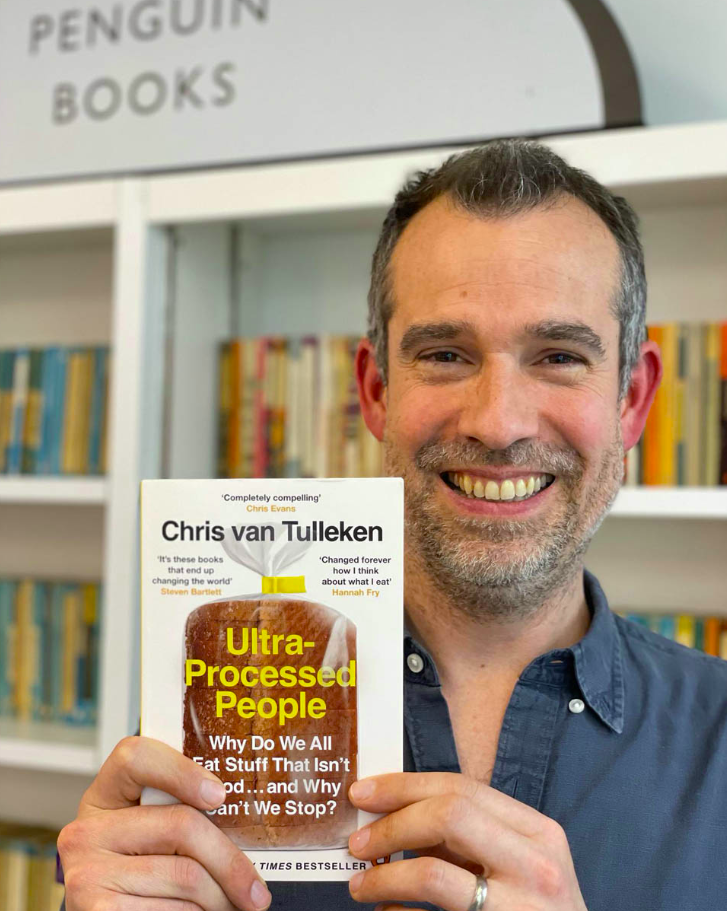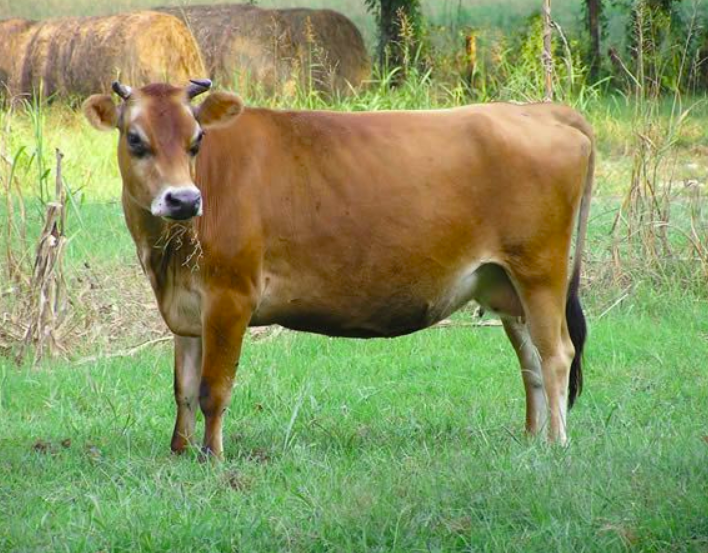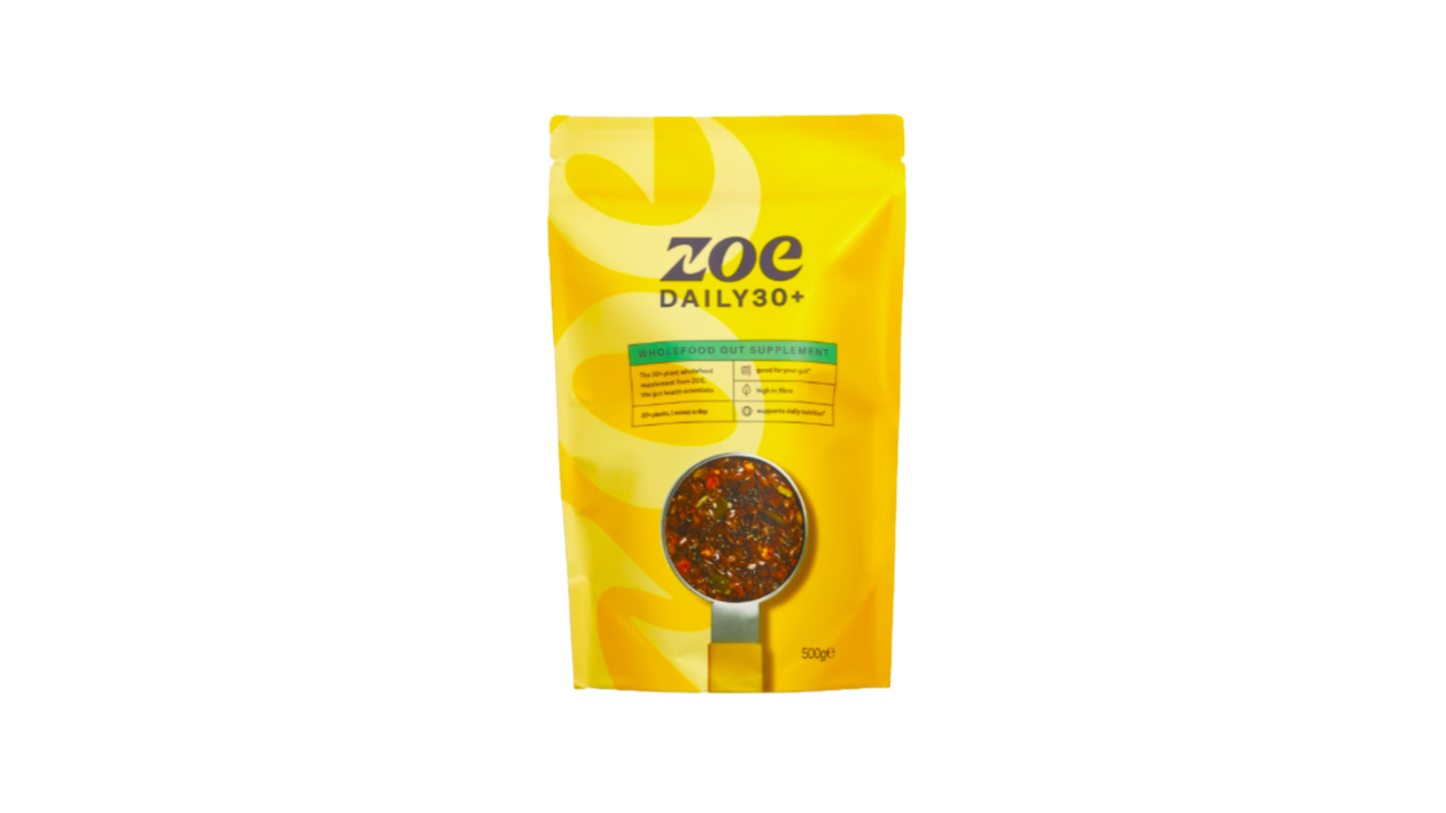‘GUT INSTINCT’: insights from ultra-processed people
UPF: edible substances, aimed to replace the traditional foods you would be able to find in your home kitchen, heavily altered by industrial methods in order to maximise corporate profit.
In April 2023 I underwent a highly invasive surgery after a period of swiftly deteriorating health. It was an extremely difficult time, but one I will forever be grateful for as it marked a turning point in my lifestyle. To aid my recovery, I started running and taking pilates classes consistently, organising frequent catchups with friends and taking an active interest in everything I was consuming - from media to food. Two years later, I have kept everything up.
Last summer I finally read ‘Ultra-Processed People’ by Chris Van Tulleken. In no uncertain terms, it has completely changed my perspective on wellness and diet.
The book acts as an expose towards the way so much of our food in the 21st century is produced - pumped with ‘ingredients’ and processes are bodies aren’t designed to consume. These ‘foods’ have completely reshaped not just our food, but our lives - our cultures, our health, and our environment. It is my number 1 book recommendation and frankly I feel it should be compulsory reading for teenagers.
My key takeaway was not so much about the systems at fault or that we should probably avoid microwave meals - deep down I think we all already knew that - but rather that our guts & their microbiome (trillions of, largely, bacteria living in our digestive tracts that aid and balance bodily function) are the true foundation of our health and well-being. Aside from digestion, gut health has a systemic influence on us from mental health, containing over 95% of our body’s serotonin and directly linked to our brain, to immune function, with a whopping 70-80% of our immune cells living there.
There are a number of ways this system can be disrupted, but the one I’m going to discuss is diet. In home-ed classes at school we were taught about ‘balanced plates’, the importance of certain vitamins and fibre.. Whilst this may all be true, none of this will matter if we are pumping our bodies with UPFs and their associated emulsifiers, gums and sweeteners.
Not quite sure what these are or why they matter? Seriously, you need to read the book.
CHECK YOUR LABELS
This is step 1. Upon starting this I didn’t actually make many changes, just quietly noted and became more aware of how ingrained UPF was to, what I thought, a relatively healthy diet. As I began to look to reduce my UPF consumption I have been able to find a UPF-free alternative for most things, it just takes a little longer for your first few trips in the supermarket and, failing that, a bit of research & an online order - I will link some of my favourite brands at the end this post. To put it simply, you’re looking for short ingredient lists, no ‘flavourings’ (even if they say natural!!), gums, sweeteners, emulsifiers or additives/’E’ numbers. Extracts should also be viewed with scepticism*
I am aware that E numbers are additives that have been approved for use & technically even beeswax has one (E 901 for those wondering) but let’s be real - if it were an ingredient the average person would view as a ‘real’ food the ingredients list would just have its name, not its ‘E’ number.
Moving away from UPFs does not mean you have to give up all of your favourite foods and eat undressed salad for the rest of your life as some of my more-sceptical loved ones appear to believe. If you find yourself feeling any stress or restriction towards your diet you should take a step back, speak to a loved one and contact your GP if necessary.
The other issue we should probably get out the way is cost; it’s true that I have found a lot of swaps have been more expensive compared to their UPF counterpart. My solution to this has been prioritising (for me this is no emulsifiers) as well as making a few more bits from scratch, like dressings and snacks. This does take more time than just buying them but I enjoy it and it makes me feel more connected to my food.
My other hurdle is that I live and eat with others. I only cook dinner once a week (which has its pros, don’t get me wrong!) so I can’t swap out the entire kitchen, but I do use these meal shops to continue checking labels & hunting out alternatives for when I have my own home.
As a separate comment, I found it very frustrating when certain loved ones were completely uninterested in learning about UPF etc. Part of me felt fuelled to ‘prove them wrong’ but actually a sustained, subtle approach has been by far the most effective - it’s not caused large-scale change (yet!) but frankly no-one enjoys constant lecturing.
HIDDEN PROCESSES
This is an area I am particularly troubled by and continuing to learn about. Essentially, after checking what is in a food product, the next step is to ask how it got there.
Take olive oil for example - you pick up a bottle of 100% olive oil, check the label and happily find it actually is 100% olive oil. Now comes the ‘how’: was the oil separated physically, or via chemical solvents? Manufacturers don’t have to disclose their processing method on the label and thus we are left in the dark, potentially ingesting harmful solvents.
The cheaper the bottle of olive oil, the more likely you are to be disappointed by its honest content and processing method, but its still worth checking whichever brand you choose with a quick internet search.
Any food that isn’t in its whole, raw form has been processed, but methods can vary vastly.
THINGS I’VE LEARNT SINCE
FERMENTED EVERYTHING
Fermentation uses bacteria to break down the carbohydrates in various foods, making them easier for you gut to digest, aiding nutritional absorption and increasing probiotics (live bacteria in your gut, key to our microbiome).
Fermentation was actually mentioned quite a lot in ‘Ultra-Processed People’ but what wasn’t mentioned was just how many things could be fermented and how many different ways.
My personal favourite discovery has been water kefir. Kefir beads, a form of bacteria, are added to sugared water and any flavourings you might like (think fruit rind etc). The bacteria feeds on the sugar, fermenting the liquid and resulting in a gut-healthy fizzy drink to rival your Cokes and Fantas that you can even make at home! I also enjoy kefir yoghurt as a light breakfast option or for a post- work snack, but admittedly I just can’t get behind the bitterness of kefir milk. There are also other gut-healthy drinks including kombuchas which you may have heard of, and I’ve recently come across an apple cider vinegar based alcohol alternative but have yet to try it.
Sauerkrauts and kimchi are excellent examples of fermented vegetables that can be easily added as sides and toppings. You can also ferment fruit, which can be eaten whole or blended into a jam-like consistency and used to flavour hot drinks or top toast. The British, female-founded brand ‘Agua de Madre’ sell water kefir and fermented fruit spreads (called ‘remedios’) in glass jars and I would highly recommend them - their set would make a nice gift.
WHOLE FOODS CAN LIE TO US TOO
Organic fruit and vegetables are the way to go if you can stretch to it. This is an obvious one potentially, but we have friends that are farmers and, therefore, knowing what some farmers are spraying on their crops and adding to their soil occasionally makes me want to run for the hills. Studies have also shown organic foods have higher nutritional contents.
Seed: The Untold Story delves deeper into this issue if you’d like to learn more and is beyond eye-opening on how the majority of the 6% of seeds we have left on the planet (compared to 100 years ago) are controlled by biotech chemical companies.
When it comes to meats like bacon, look for ‘nitrite-free’ branding. This one caught me off guard, because all bacon etc contains nitrates as part of its natural composition, but it turns out producers are adding nitrites (often sneakily disguised on ingredients list as ‘celery extract’ even on organic products) as a preserving agents to enhance colour. The problem is that an excess of nitrites can form carcinogenic compounds during the cooking process. Whilst no bacon will actually be completely nitrite-free and it does have some health benefits, it’s the excess addition we should all aim to avoid.
Whilst not necessarily UPF related, it might be worth taking a look at the milk you’re drinking as well. Whilst research is ongoing, it’s looking like standard milk, which contains A1 beta-casein protein, may contribute to an array of digestive issues. Milk containing just A2 beta-casein proteins has been reported as both easier to digest and immune supporting, and can be found in milks including Guernsey and Jersey. This is often dubbed ‘gold top’ in supermarkets and whilst it is higher in fat content than some other milk it is also more vitamin dense.
These examples are by no means extensive, but I myself am still constantly learning and my aim here isn’t to write a complete list of ‘good’ vs ‘bad’; I want us all to question what the food industry has been ‘feeding’ us for so long, get people talking and making changes to support their wellbeing and, as a result, send a signal to industry and regulators.
DIVERSITY OF FOODS
If you’re looking for more resources on UPFs, the books by Tim Spector OBE are a fantastic source. I would particularly recommend ‘Food for Life’, which focuses on the detailed nutritional breakdown of individual foods. Spector is also the cofounder of ‘ZOE’, a personalised nutrition app - it’s based on the premise that ‘one-size fits all’ nutritional recommendations doesn’t take into account our unique gut microbiomes and genetics. ZOE has you provide them with some samples and then allows you to input photos of meals which get put through an AI processor to identify its ingredients and assign a rating (they also allow barcodes etc). I, personally, like to view the day as a whole when it comes to nutrition but this is an amazing tool and has been fantastic for some of my loved ones with digestive issues.
Spector advocates for a widely varied diet full of gut-supporting fibre, and ZOE sells a nutritional supplement called ‘Daily 30+’ containing over 30 plants to support this. I’m not particularly one for promoting supplements as a well-balanced diet should be able to fulfil most of our nutritional needs, but this supplement is based on findings from a scientific study and is completely natural. I did wonder if I might try to buy the ingredients since it is quite expensive, but I just don’t know how I would store them all!
WATER
Over the last couple of years I’ve seen an alarming number of stories regarding faecal bacteria (yes, exactly what you’re thinking) entering UK drinking water - take the of Yorkshire just this year!
I have loved ones working for the water industry so this isn’t necessarily a pop at them, but more-so a public service announcement to filter your water just in case. ‘Water2’ plugs directly into your pipes, tucking neatly in your under-sink cupboard to filter water before it’s even left the tap. I have come across some glass counter-top filters that use ceramic filters but they have to be cleaned often which is difficult as they’re so large and they take up a lot of counter-space.
As an aside, I’ve been looking into ‘lucky fish’, small blocks of food-grade electrolytic iron powder shaped into fish that can be boiled in liquids like curries, pasta water etc to provide your meals with an iron boost. Over 30% of us are anaemic (have too little iron), yet this feels likely a highly female-centred issue with women aged 19-50 and pregnant women both needing over double the daily amount a man does and I just don’t hear many people talking about it - hence why I’m adding it in here!
BACK BRITISH FARMING
I realise this isn’t completely relevant to a post on UPFs, but as you start looking more closely at what makes up your diet it’s not a large leap towards seeking out locally-grown, locally-reared, locally made produce. I am biased on this front as I have close friends who are farmers, but I still think the closer to your home something is produced the less need to for preservatives and the more confident you can feel about the standards used.
‘Wylde market’ is another recent discovery of mine and I just love the concept- an online farmers market featuring sustainable British artisans and producers that list whatever produce they’ve made/caught etc every Friday at 5pm -Wednesday at 12pm and then send it to you directly. It’s genius!
FINAL THOUGHTS
Believe it or not, this is the condensed version of this post. I am so passionate about this area, constantly learning and seeking to provide the best for my loved ones’ health - in many ways. it’s my love language. As I continue to learn I may do a lengthier post about the specific individual swaps I’ve made and their ‘why’, but either way I hope this post has provided you with a little insight into the area and got your mind questioning the status quo.
Feel free to email me on rosesandreverieinfo@gmail.com if you’d like to discuss this further or have any questions!





